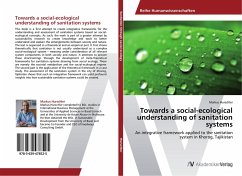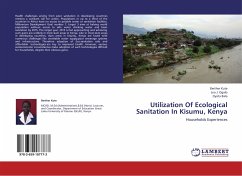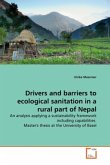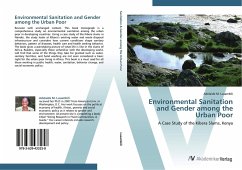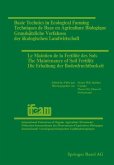This book is a first attempt to create integrative frameworks for the understanding and assessment of sanitation systems based on social-ecological concepts. As such, the work is part of a greater attempt by sustainability research to create knowledge and tools to better understand and explain the entanglements between society and nature. The text is organised in a theoretical and an empirical part. It first shows theoretically that sanitation is not usually understood as a complex social-ecological system meaning under consideration of all relevant system components in both society and nature. It attempts to answer these shortcomings through the development of meta-theoretical frameworks for sanitation systems drawing from social ecology. These are namely the societal metabolism and the social-ecological regime. The second part is the application of the theoretical framework in a case study. The assessment of the sanitation system in the city of Khorog, Tajikistan shows that such an integrative framework can yield profound insights into how sustainable sanitation systems could be created.
Bitte wählen Sie Ihr Anliegen aus.
Rechnungen
Retourenschein anfordern
Bestellstatus
Storno

